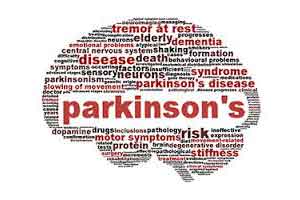- Home
- Editorial
- News
- Practice Guidelines
- Anesthesiology Guidelines
- Cancer Guidelines
- Cardiac Sciences Guidelines
- Critical Care Guidelines
- Dentistry Guidelines
- Dermatology Guidelines
- Diabetes and Endo Guidelines
- Diagnostics Guidelines
- ENT Guidelines
- Featured Practice Guidelines
- Gastroenterology Guidelines
- Geriatrics Guidelines
- Medicine Guidelines
- Nephrology Guidelines
- Neurosciences Guidelines
- Obs and Gynae Guidelines
- Ophthalmology Guidelines
- Orthopaedics Guidelines
- Paediatrics Guidelines
- Psychiatry Guidelines
- Pulmonology Guidelines
- Radiology Guidelines
- Surgery Guidelines
- Urology Guidelines
Simple brain scan could help improve Parkinsons treatment

New York : Researchers have discovered that tracking changes in five brain areas linked to movement and balance with a simple non-invasive imaging technique could help evaluate experimental treatment to slow or stop the progress of Parkinson's.
The researchers used functional magnetic resonance imaging (fMRI) to reveal areas where Parkinson's disease and related conditions cause progressive decline in brain activity.
While current treatments focus on controlling symptoms, biomarkers provide a quantifiable way to measure how medications address not just symptoms, but the neurological changes behind them.
Previous studies have used imaging techniques that require the injection of a drug that crosses the blood-brain barrier.
"Our technique does not rely upon the injection of a drug. Not only is it non-invasive, it's much less expensive," said the study's senior author David Vaillancourt, Professor at University of Florida.
The finding, published in the journal Neurology, builds on a 2015 University of Florida study that was the first to document progressive deterioration from Parkinson's via MRI, showing an increase in unconstrained fluid in an area of the brain called the substania nigra.

Disclaimer: This site is primarily intended for healthcare professionals. Any content/information on this website does not replace the advice of medical and/or health professionals and should not be construed as medical/diagnostic advice/endorsement or prescription. Use of this site is subject to our terms of use, privacy policy, advertisement policy. © 2020 Minerva Medical Treatment Pvt Ltd